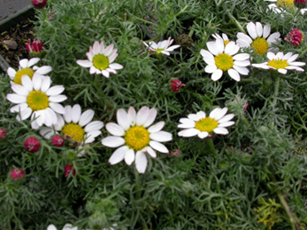Akarkara, Pellitory (Anacyclus Pyrethrum)

Akarkara belongs to Asteraceae family of plants and its botanical name is Anacyclus pyrethrum. It is an herb with many medicinal uses. Apart from Ayurveda, it is used by other alternative systems of medicine like Unani and Homeopathy.
The herb is mostly known and famous for its aphrodisiac effect on the body and helps in the detoxification of excess wastes and fluids from the body.
Most beneficial and useful part of plant is the root which is medicinally used in the form of dried powder.
COMMON SYNONYMS OF ANACYCLUS PYRETHRUM
- English name - Pellitory, Mount Atlas Daisy, Spanish Chamomile etc.
- Hindi name - Akarkara
- Sanskrit name - Akarkara
- Gujrati name - Akkorakaro
- Bengali name - Aakarkara
- Marathi name - Akkalakara
- Telugu name - Akarakaram
- Tamil name - Akkirakaram
OCCURRENCE AND CHEMICAL CONSTITUENTS
It is a perennial plant that is common to the Indian subcontinent. Arabian countries and Spain are among its other growing areas.
Chemicals obtained from this plant are Pyrethrin, Inulin, Alkyl Amides, Anacyclin, Sesamine and Hydrocarolin.
The alkyl amides are responsible for its aphrodisiac and neuro - protective properties.
- Guna (Characteristics): Ruksha (Dry), Tikshna (Piercing)
- Rasa (Taste): Katu (Pungent)
- Vipaka (After Taste that Develops Post Digestion): Katu (Pungent)
- Virya (Potency): Ushna (Hot)
SPECIAL ACTIVITY
Anacyclus Pyrethrum pacifies Kapha and Vata doshas and is believed to be a very effective natural stimulant of the immune system.
It has a unique property by which it can improve speech problems in growing children. Vacha (Acorus Calamus) is another herb which can be used in its combination with Akarkara (Anacyclus pyrethrum).
COMMON PROPERTIES OF THE HERB
- Anacyclus pyrethrum works very effectively on the male reproductive system. It is very good for the body in improving the hormonal regulation of the male gonads and in stimulating the secretions of these organs.
- The herb may also improve testosterone levels in males. Overall, it improves libido, sperm count and fertility problems in them.
- Anacyclus pyrethrum is also a very good nervine tonic as it strengthens nerve response and balances vata dosha – energy responsible for healthy nerve functions in the body.
- All in all this can be considered as a very good option for males suffering from libido issues as it can help improve sexual pleasures and erectile problems overtime without causing any side effects that are very common with modern drugs.
- It is often combined with other herbs to amplify its effect. Ashwagandha (Withania somnifera) and Kaunch beej (Mucuna pruriens) are the two herbs that can be used in conjunction with Akarkara.
- Akarkara can help relieve oral conditions and throat infections like pharyngitis. It can be boiled and used as gargle to provide quick and natural relief in case of pharyngitis, teeth and gum problems. Due to its vata vitiating properties, Akarkara can be used to relieve toothache and infectious gum condition like pyorrhea also.
- Kapha vitiating properties of this herb can be used to treat nasal congestion and upper respiratory tract problems like common cold.
- Akarkara has an important role to play in preventing and controlling epilepsy and seizures. It can be taken along with other herbs like Shankhapushpi (Convolvulus pluricaulis) etc for this purpose.
A WORD OF CAUTION
Care should be taken if one is suffering from problems of gastric ulceration, acidity and intestinal inflammation in any form.
It is not safe during pregnancy and breast feeding.
Higher doses and long term use should be highly managed under the supervision of an Ayurvedic physician.
DOSAGE
Akarkara root powder, dosage is variable from 125 mg to as high as 1 g.



